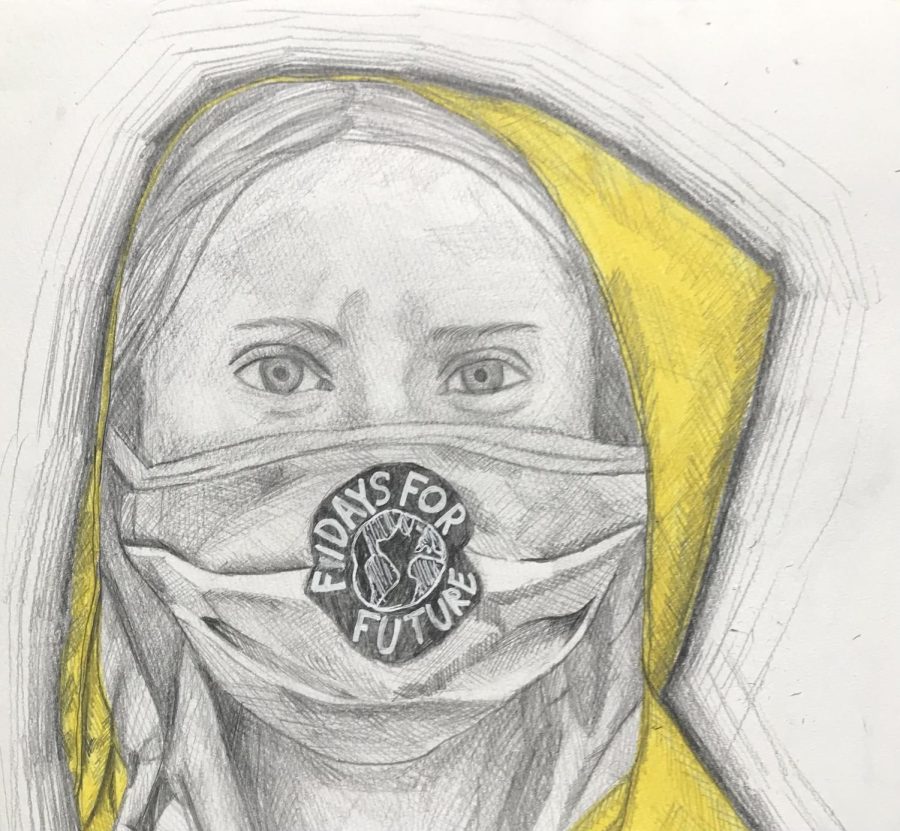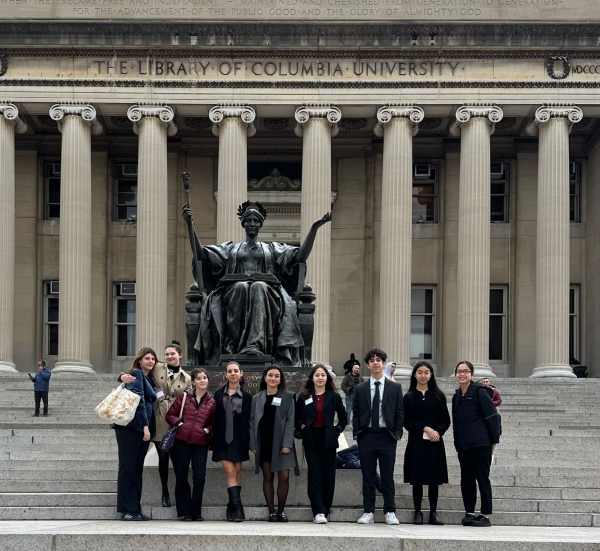Climate Change Conferences — What Have They accomplished?
Photo by Amarins Edens
Drawing of Greta Thunberg
Though scientists first warned us of the dangers of climate change in the late 1950s, little action was taken in the following decades. In recent years we began to see the many catastrophic weather events caused by climate change, such as the wildfires in Australia and extreme hurricanes, like Hurricane Ida in 2021. However, only in the past decade have governments started taking significant steps to fight climate change. This includes attending and setting goals for themselves at the well-known 2015 United Nations Climate Change Conference held in Paris, as well as the more recent COP26 conference, which took place in Glasgow during early November of 2021. Although there has been a lot of criticism regarding these conferences, especially by climate activists such as Greta Thunberg, these summits have also benefited us in many ways. So what exactly have these climate conferences accomplished over the years, and what have they been lacking?
The most notable climate-change conferences have been the yearly UN-organized COPs, or Conferences of the Parties. The first of these two-week long meetings took place in Berlin in 1995 and was known as COP1. They are organized by the UNFCCC (United Nations Framework Convention on Climate Change), which brings together leaders, scientists, and climate activists from over 190 countries to discuss issues regarding climate change, and set goals in terms of carbon emissions. The most important of these conferences before the famed Paris Conference was COP3, which took place in Kyoto, Japan. This COP was particularly important as the Kyoto Protocol was established, which acknowledged that individual countries have different responsibilities in combating climate change, and placed the responsibility of limiting emissions in the hands of the most developed countries. The treaty caused each country to set a goal for limiting themselves to a maximum level of increase or minimum level of decrease in greenhouse gas emissions, depending on the country’s economic situation.
During the Paris Climate Conference (COP21) in 2015, the leaders of 191 countries and climate scientists and activists came to the consensus to sign a treaty more commonly known as the Paris Agreement. The agreement is often discussed due to its concrete goal of limiting temperature rise to 2℃, but aiming to stay under a 1.5℃ rise. The Paris Agreement served as the conclusion of the long negotiations among countries, and also covered the financial aspects of combating climate change. During the conference, developed countries pledged to give financial support to developing countries in order for them to effectively combat climate change. A more detailed plan on how to track progress was also made, which stated that each country must submit a Nationally Determined Contributions (NDC) report every 5 years in which they describe what they have accomplished, set goals for the future, and explain what actions they will take against the impacts of rising temperatures. These goals, they decided, should get increasingly ambitious per 5-year cycle.
A COP26 conference should have occurred in 2020 to check in on the progress made after five years, but due to COVID, this was delayed to 2021. COP26 was considered the most important conference since the Paris Conference (skipping COP22-25), as it was a review of each country’s goals just after they each released their first NDC report. COP26 included another two weeks of conferencing, after which the countries concluded that they will continue their efforts to stay with their previous goal of only a 1.5℃ rise in temperature. The general consensus was that in order to reach this goal, it was necessary to accelerate climate action. During the conference, wealthier countries were also urged to continue giving funding to developing countries—who don’t contribute as much to climate change—as compensation for the damages they have faced as a result of it.
These climate change conferences and their resulting goals have been heavily criticized by climate scientists, activists, and regular citizens alike. For example, famous climate change activist Greta Thunberg has openly expressed that she believes politicians are not doing enough. She has claimed that “the changes that are necessary will not come from inside these conferences” and that “what would be considered a success, would be if people realized what a failure [COP26] is.” The conferences are also heavily criticized by the general public since governments are evidently not on track to achieve their targets. For example, currently all countries except for The Gambia, are off track to meet the 1.5℃ goal. Additionally, much of the funding that was promised to developing countries by wealthier countries has not yet been provided. There is doubt about whether or not the goals being set by these nations will actually be met since promises made in the past were not always kept.
However, COP 26 did have some promising results. For example, India joined the US and the EU in pledging to reach net-zero emissions by 2070. And the US, though it resigned from the Paris Agreement under President Trump, (and re-entered recently under President Biden) pledged to cut its emissions by half by 2030. In fact, many other countries also set more specific and ambitious goals for themselves. Before the COP26 conference, the pledges made by countries would cause a total 2.7℃ rise by the end of the century. Yet, if all goals set at the conference are achieved, this would cause only a total of 1.9℃ to 2.1℃ rise by 2100. All of this shows that even though the conference was heavily criticized, it may have been more productive than was portrayed in the media.
According to climate change activists, much more action needs to be taken. Although this is certainly true, especially if we are still hoping to reach the goal that was originally set at the Paris summit, the targets agreed upon so far show progress. It is imperative that we continue encouraging politicians to take more action, but we should also celebrate the progress that has been made at these conferences thus far.

Hi! I'm a student in the class of 2025 and in my free time I enjoy playing soccer, drawing, and reading. For UNISVerse, I prefer researching and writing...













